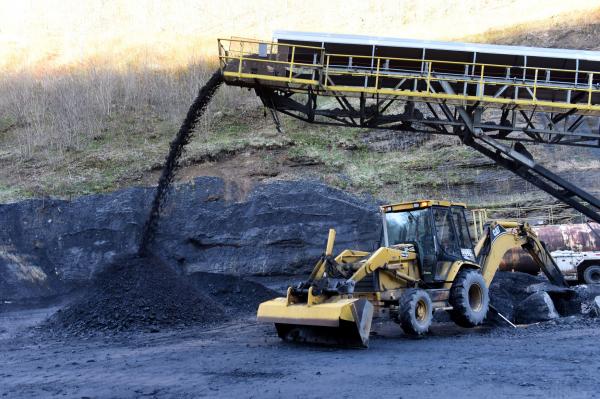
Across the U.S., Western Europe, and even in parts of Asia, coal is in secular decline. There will be very few coal power plants built in many western countries in the coming years if environmentalists have their way, and the superior economics of natural gas are piling on even more pressure. Yet there is still at least one major European nation where coal is thriving: Poland.
Poland may not be as economically developed as Britain, Germany, or France, but the country still has roughly 40 million people putting it in the top ranks of largest European countries. And Poland loves coal. The country produces 90 percent of its electricity from coal, and the government there is doubling down looking to build still more.
“Building more efficient coal power plants will get us better results in cutting CO2 emissions than building renewable energy sources like wind or solar,” says Energy Minister Krzysztof Tchorzewski, a member of the Law and Justice party, came to power in October with union backing after it pledged to preserve mining jobs.
All of this coal power is a double-edged sword. Coal has helped preserve more than 100,000 mining jobs across Poland, and the country’s economy is holding up about average for the EU as a whole. Poland has hit some hiccups in the last year, but that’s about par for the course for all major nations within the EU. On the other hand, the use of coal is clearly having a detrimental effect on some aspects of Polish quality of life. For instance, the World Health Organization estimates that two-thirds of the EU’s most polluted cities are in Poland especially in the mining region of Upper Silesia.
Related: Oil Heads Lower For Sixth Day In A Row
Poland’s Law & Justice party has been a big supporter of the coal industry including encouraging three of the major utilities to invest potentially 1.5 billion zloty in a stake in restructured mining company Polska Grupa Gornicza. PGG’s business is looking shaky despite the new capital infusion and it’s unclear if the company is viable in the long run. Part of the problem may be that the Polish coal mining industry is structurally too inefficient for the modern economy and to compete in the long run against clean energy alternatives such as like windmills.
Poland is probably the future of coal in more ways than one. The durability of the coal mining industry is at least partially based on entrenched industry interests helping to promote the industry through the power of government. In the absence of government intervention, coal-rich Poland would still be using some coal just as the U.S. is, but probably not to the degree it currently does.
The future of coal is going to be increasingly reliant on preservation of the status quo. Regardless of whether one thinks global warming is a particular problem or not, it is clear that coal is a less attractive power option than natural gas or renewables. Coal requires difficult and dirty mining operations that employ people but in backbreaking work. Renewables and natural gas employ fewer people, but in arguably more pleasant and higher value-add functions.
Despite all of this, unions in Poland are predictably behind coal though including the powerful Solidarity union. Given that, it is unlikely coal will be going anywhere soon in Poland.
[Source:- UPI]




